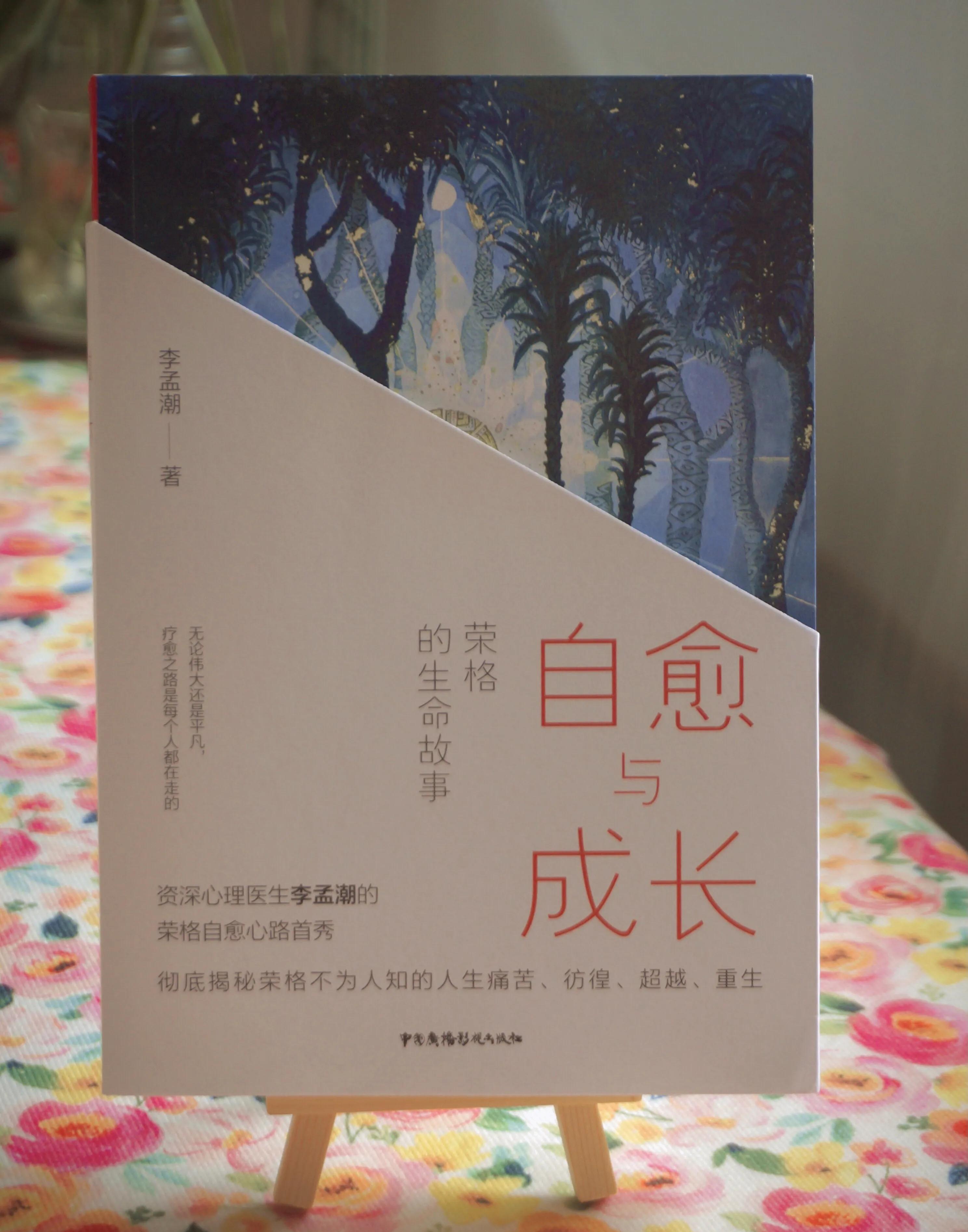Title: Self-Healing and Growth
Author: Li Mengchao

Self-healing is a lifelong affair
Many years ago, because of the state of his emotions, he became interested in psychology, and in the process of studying psychology monographs, he recognized Jung through Freud's psychoanalytic stories. Their theoretical systems have similarities and differences, but the analysis of people's "deep" and the study of dreams that they brought to me not only subverted my cognition, but also made me once fall into the dream interpretation and discussion of the relationship with my parents.
I not only studied myself as a case study, but also pulled up friends, even netizens, I have to say that this passionate experience, but also for some of my later consulting cases, brought help, and even once became the object of my friends. Unfortunately, I did not stick to it, and for various reasons, I left psychology and psychological counseling. At that time, I thought that my emotions had also been resolved.
Until recently, after reading the book "Self-Healing and Growth", the author Li Mengchao combed through Jung's life, and put the very important, interesting, and special events and periods in Jung's life into it through the timelines of childhood, adolescence, youth, middle age, and old age, and combined Jung's dreams into it for analysis. Just like this, this is a Jungian "case study", which shows the reader the pain and wandering of a well-known psychology master in his life.
And the way this book is written, I am reluctant to put it down and read it all at once. Because, its writing style is special. It's not boring, because the case of dreams replaces the theory. It is interesting because Jung's growth process is analyzed from the perspective of psychological counseling. People are eye-catching, the original writing of the master's autobiography, you can also write like this. Give people strength because you will get some of the answers to life in it.
Naturally, I also understand that regarding self-healing is actually something that should be done all my life.
"Self-fulfillment"
The book tells many interesting cases, and naturally also tells the story of Jung and Freud's "love and killing" that everyone is familiar with. We all know that Jung's theoretical disagreement with Freud led to the final separation of the two men. Many of the stories in the book also stop here, and the author Li Mengchao not only tells the story vividly, he describes Jung as a professional doctor from the class at that time, met Freud from the jianghu, and also analyzed where Jung's last "betrayal" of Freud came from.
In addition, jung's own growing environment, the fatherly love power brought to him by his father, also comes from a habit that Jung had since childhood- reading. Because of reading, and reading many famous works, jungian thought system was already in its infancy. When a person's ideological framework is solid, with their own judgments and ideas, they will never be confused by the outside, nor will they be easily taken away by other people's theories.
The author Li Mengchao summed it up in one sentence: A person has the courage to rebel against the mainstream of society, which is a manifestation of self-sufficiency, self-perfection and freedom. At the same time, Jung therefore believes that different case therapies are not the same. Because each person is different, it is their own independent individual, but also the whole.
Here, the author Li Mengchao tells a case of Jung - the moon girl, the girl suffered a lot, and finally could not accept it, and "isolated" herself on the moon. In the process of treatment, Jung was also threatened with a gun by visitors, but Jung insisted that "people-oriented", that is, in the process of consultation, do not rush to "debunk" the client's fantasies and enter his world to explore, so that it is possible to solve the client's problems.
Through this interesting case, the author Li Mengchao not only describes Jung's pattern as a psychological counselor, but also explains why psychological counseling requires a long-term process, as well as explains the meaning and role of the psychological counseling term "projection".
Integrate a professional term that ordinary people don't understand into the story.
Integration itself is self-healing
Li Mengchao, a senior psychologist, has published many books under the famous first international psychological analyst in China, Professor Shen Heyong. When he wrote this book, he was also suffering from his midlife crisis. As a psychological counselor who already has a reputation, most people cannot understand this situation. Have you learned so many theories and experienced so many cases that you still can't "save yourself"?
Naturally, man is so magical and so elusive. But with the writing process of the book, Li Mengchao also gradually gained energy in it. Man should be viewed as a single whole, not as a single unified standard. It was a one-size-fits-all fracture that fragmented the entire system of man.
In fact, the integration itself is self-healing, when you will ignore the details, little by little to pick up, the system naturally flows, growth begins, self-healing also stands where you can see, step by step closer, just fine.
By writing this book, the author Li Mengchao connected himself with Jung, just as the counselor and the client were connected as one, and he was gradually healed in it.
And what "integration" is, I think, is probably a kind of "self-fulfillment", which requires you to fill and connect it at different stages of life, so that you are full and full. Just as Jung spent his whole life using his dreams as a pathway to "self-perfection."
Integration is a kind of self-healing, and growth takes a lifetime.